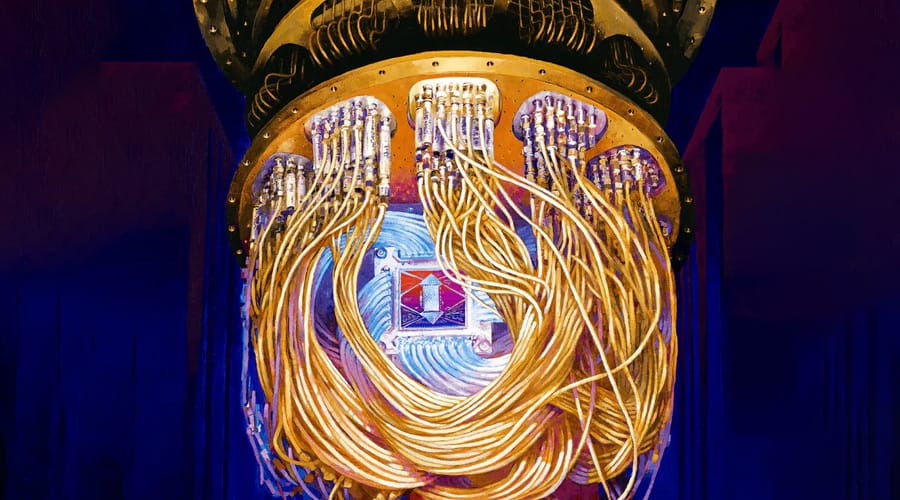In October 2019, Google made history in the realm of computing with its quantum computer named Sycamore. Demonstrating what is known as “quantum supremacy,” Sycamore performed a calculation in mere seconds that would have taken the world’s most powerful classical supercomputer thousands of years to complete. This achievement marked a significant milestone in quantum computing, showcasing its potential to revolutionize fields ranging from cryptography to material science.
The Breakthrough: Quantum Supremacy
What is Quantum Supremacy?
Quantum supremacy refers to the point where a quantum computer can solve a problem that no classical computer can solve in a reasonable amount of time. Google’s Sycamore achieved this by performing a specific calculation in 200 seconds that would have taken Summit, the world’s fastest supercomputer, approximately 10,000 years.
How Did Sycamore Achieve Quantum Supremacy?
Sycamore operates on principles of quantum mechanics, utilizing quantum bits or qubits that can exist in multiple states simultaneously. This parallel processing capability allows quantum computers to tackle complex problems exponentially faster than classical computers.
Implications and Applications
Advancements in Computing Power
The achievement of quantum supremacy represents a leap forward in computing power, potentially enabling breakthroughs in fields requiring extensive computational resources, such as cryptography, drug discovery, and optimization problems.
Challenges and Future Prospects
While quantum supremacy marks a significant milestone, practical applications of quantum computing still face challenges such as error correction, scalability, and maintaining qubit coherence. Ongoing research and development are focused on overcoming these hurdles to harness the full potential of quantum computers.
FAQ
What is quantum supremacy?
Quantum supremacy refers to the capability of a quantum computer to solve a problem that classical computers cannot solve within a reasonable timeframe.
How many qubits does Google’s Sycamore have?
Google’s Sycamore quantum processor has 54 qubits, which were used in the demonstration of quantum supremacy.
What calculation did Sycamore perform to achieve quantum supremacy?
Sycamore performed a random sampling calculation that involved generating and analyzing a complex pattern of numbers, demonstrating its ability to perform calculations significantly faster than classical computers.
What are the potential applications of quantum computing?
Quantum computing holds promise for applications in cryptography, optimization problems, drug discovery, and materials science, among others, due to its ability to process large volumes of data and solve complex algorithms more efficiently than classical computers.
How does quantum computing differ from classical computing?
Classical computers process information using bits that represent either a 0 or a 1, whereas quantum computers use qubits that can represent both 0 and 1 simultaneously due to principles of quantum mechanics, allowing for parallel processing and potentially exponential speedups in certain calculations.
Google’s achievement of quantum supremacy with its Sycamore quantum computer in 2019 marked a watershed moment in the field of computing. This breakthrough not only demonstrated the extraordinary capabilities of quantum computing but also opened new horizons for solving complex problems that were previously out of reach for classical computers. As research and development in quantum computing continue to progress, the potential for transformative impacts across various industries becomes increasingly apparent.








Your article helped me a lot, is there any more related content? Thanks!
Can you be more specific about the content of your article? After reading it, I still have some doubts. Hope you can help me. https://accounts.binance.com/en/register?ref=JHQQKNKN
Hey guys, quick shoutout to gamebet9. Been using it for a bit and it’s pretty solid. Easy to navigate, good odds. I like it. See for yourself at gamebet9.
Your article helped me a lot, is there any more related content? Thanks! https://accounts.binance.info/es-AR/register-person?ref=UT2YTZSU
Your point of view caught my eye and was very interesting. Thanks. I have a question for you.
E aí, galera! Alguém aí já se aventurou no f12betbr? Achei os odds bem interessantes e a plataforma é super fácil de usar. Vale a pena dar uma olhada! Boa sorte nos seus palpites! (Hey guys! Has anyone ventured into f12betbr? I found the odds interesting and the platform is super easy to use. Worth checking out! Good luck with your guesses!)